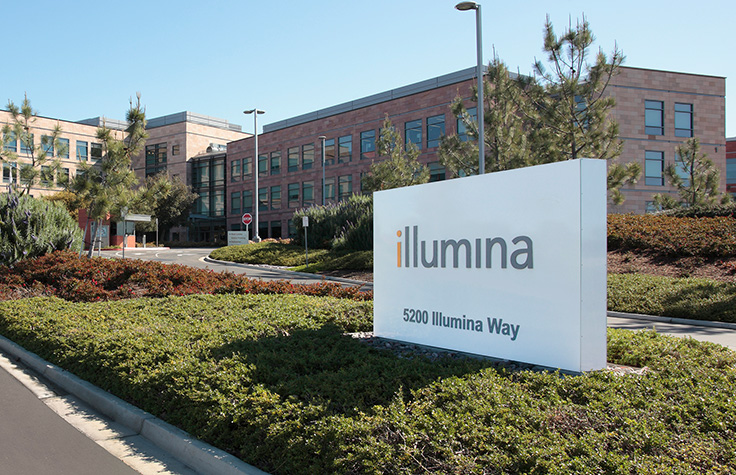Illumina and activist investor Carl C. Icahn—who is sparring with the sequencing giant over its planned $7.1 billion acquisition of cancer blood developer Grail—are sparring over the company increasing its insurance protection to board members before they approved the purchase.
In his most recent open letter to Illumina shareholders, disclosed by Illumina on Friday, Icahn wrote that the company’s board members appeared to have had misgivings over the Grail deal since they required Illumina to commit to giving them “an unprecedented level” of additional personal liability protection above existing protections before signing off on the acquisition.
Quoting from the agreement, Icahn noted that the additional protection was to be offered “in connection with any and all claims against any of them arising out of or related to the acquisition and/or any determinations or decisions in connection with regulatory approvals, rulings, or other action or non-action sought in connection with the acquisition.”
“While clearly, we do not possess a crystal ball, this smells strongly to us like a quid pro quo—a group of trepidatious directors were dragged reluctantly, kicking and screaming, by management into an extremely risky deal and ultimately conditioned their approval upon receiving an even thicker blanket of immunity than the extremely luxuriant comforter which they already possessed,” Icahn wrote.
In his latest letter, Icahn called Illumina’s acquisition of Grail despite opposition from U.S. and European antitrust regulators “a new low in corporate governance.”
“We realize that if Illumina’s directors all continue to adhere to the omertà surrounding the Grail transaction, shareholders may never know what truly motivated them to embark on their value-destructive war with powerful antitrust regulators,” he added.
Illumina responded with a statement defending the board and its actions in approving the company’s purchase of Grail. Illumina said all major U.S. public companies “regularly review their D&O [directors and officers] insurance to reflect appropriate coverage,” while noting that D&O insurance and corporate indemnification were standard for Delaware-incorporated companies, and helped ensure that directors made decisions that were in the best interests of shareholders.
“Not uncommon”
Illumina also cited in its board’s defense a Financial Times report on the conflict with Icahn which attributed to “legal experts” the observation that “it is not uncommon for a company buying another business to increase insurance limits during the acquisition process.”
“Illumina’s Board of Directors is independent and acts in the best interests of its shareholders,” the company declared. “The Board takes its fiduciary duties seriously and exercises considered and deliberate judgement with independent advice. Illumina steadfastly follows appropriate risk management and disclosure practices.”
Icahn is seeking to change Illumina’s board, and thus the company’s direction. At the company’s upcoming annual meeting, Icahn, his Icahn Partners, and 13 affiliated entities and individuals plan to nominate three allies to the company’s nine-member board who he said would “bring a badly needed dose of sanity to Illumina’s boardroom.”
Countered Illumina: “Mr. Icahn’s nominees lack relevant skills and experience for Illumina’s Board. Mr. Icahn has no ability to accelerate the legal and regulatory processes and neither do his nominees.”
Illumina announced its plan to buy Grail in September 2020, saying the deal would accelerate the commercialization of its Galleri™ blood detection test, then being planned for launch in 2021. “Galleri is among the most promising new tools in the fight against cancer,” Illumina stated at the time.
Since then, Illumina has defended its planned purchase of Grail, while stating earlier this year that if it loses a pending appeal in Europe, it “expects to execute a divestiture based on the terms of the final order, expeditiously and in a manner that serves the best interests of Illumina’s shareholders.”
Illumina has appealed to the European Commission not to make binding an antitrust order directing the company to divest itself of the cancer blood test developer. The EC blocked the deal in September 2022, concluding that the purchase would stifle innovation and reduce choice in the emerging market for blood-based early cancer detection tests. Three months later the Commission issued a Statement of Objections laying out measures to undo the deal. A final EC decision is expected this spring.
In the United States, an administrative law judge ruled in Illumina’s favor against the U.S. Federal Trade Commission (FTC)’s challenge to the Grail acquisition. The FTC is appealing the ruling.
Last year, Illumina wrote down nearly half the value of the deal, having taken a $3.914 billion goodwill impairment charge against third-quarter 2022 earnings, “primarily due to the negative impact of current capital market conditions and higher discount rates.

